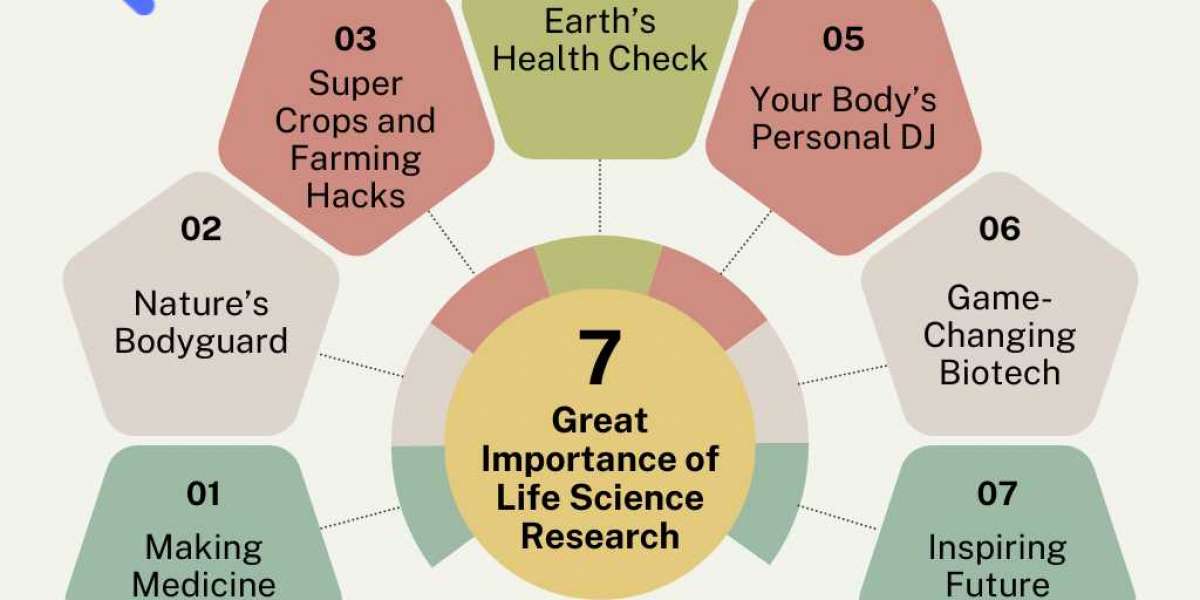Life science research stands at the forefront of scientific innovation, driving breakthroughs that shape the landscape of modern healthcare. From unraveling the mysteries of the human genome to developing cutting-edge therapies, researchers are pushing the boundaries of knowledge to address some of the most pressing challenges facing humanity. In this article, we delve into the diverse and dynamic field of life science research, exploring key topics and emerging trends that are shaping the future of medicine.
Understanding the Human Genome:
One of the most significant achievements in life science research has been the mapping of the human genome. This monumental effort, completed in the early 2000s, provided a comprehensive blueprint of human genetic material, unlocking new possibilities for personalized medicine. Today, researchers continue to explore the intricacies of the genome, investigating how variations in DNA sequence contribute to health and disease. By deciphering the genetic basis of conditions such as cancer, cardiovascular disease, and neurodegenerative disorders, scientists aim to develop targeted therapies tailored to individual patients.
Advances in Biotechnology and Gene Editing:
Recent years have witnessed remarkable advances in biotechnology and gene editing technologies. CRISPR-Cas9, in particular, has revolutionized the field, offering precise and efficient tools for modifying genetic material. Researchers are harnessing the power of CRISPR to correct genetic mutations associated with inherited diseases, develop novel gene therapies, and engineer crops with enhanced nutritional value and resilience to environmental stressors. As the capabilities of gene editing continue to expand, ethical considerations and regulatory frameworks are being carefully scrutinized to ensure responsible and equitable use of these technologies.
Unlocking the Potential of Stem Cells:
Stem cells hold immense promise for regenerative medicine, offering the potential to repair or replace damaged tissues and organs. Researchers are investigating various sources of stem cells, including embryonic, adult, and induced pluripotent stem cells, exploring their therapeutic applications in treating conditions such as spinal cord injuries, heart disease, and Parkinson's disease. Advances in stem cell research have also led to the development of organoids—miniature, three-dimensional models of organs grown in the lab—which serve as invaluable tools for studying human development, disease mechanisms, and drug responses.
Harnessing the Microbiome:
The human microbiome, consisting of trillions of microorganisms inhabiting our bodies, plays a crucial role in health and disease. Researchers are unraveling the complex interactions between the microbiome and various physiological systems, from the gut-brain axis to the skin microbiota. By understanding how changes in microbial communities influence disease states, scientists aim to develop microbiome-based interventions for conditions such as inflammatory bowel disease, obesity, and mental health disorders. Probiotics, prebiotics, and fecal microbiota transplantation are among the approaches being explored to modulate the microbiome and promote health.
Data Science and Artificial Intelligence in Healthcare:
The integration of data science and artificial intelligence (AI) is revolutionizing healthcare delivery and clinical decision-making. Machine learning algorithms analyze vast amounts of biomedical data, ranging from electronic health records and medical imaging scans to genomic sequences and wearable sensor data, to extract meaningful insights and identify patterns predictive of disease risk and treatment outcomes. AI-powered diagnostic tools, predictive models, and virtual health assistants are reshaping the healthcare landscape, improving patient outcomes, and optimizing resource allocation.
Addressing Global Health Challenges:
Life science research plays a crucial role in addressing global health challenges, from infectious diseases and pandemics to disparities in access to healthcare. Researchers are at the forefront of efforts to develop vaccines, therapeutics, and public health interventions to combat emerging infectious agents such as SARS-CoV-2, Ebola virus, and Zika virus. Furthermore, initiatives aimed at improving healthcare infrastructure, expanding access to essential medicines, and promoting health equity are central to the mission of life science research in tackling global health disparities.
Emerging Technologies and Future Directions:
Looking ahead, the future of life science research promises continued innovation and discovery fueled by emerging technologies and interdisciplinary collaboration. Fields such as nanotechnology, synthetic biology, and quantum computing hold immense potential for transforming healthcare by enabling precise drug delivery, synthetic gene circuits, and accelerated drug discovery processes. Moreover, the convergence of life sciences with fields such as robotics, materials science, and neuroscience opens new avenues for exploring the complex interactions between biological systems and the environment.
Conclusion:
Life science research is a dynamic and multifaceted endeavor that holds the key to addressing some of the most pressing challenges facing humanity. From decoding the human genome to harnessing the power of stem cells and artificial intelligence, researchers are driving innovation at the intersection of biology, technology, and medicine. As we continue to unlock the mysteries of life, the possibilities for improving health and well-being are limitless, ushering in a future where personalized, precision medicine is the cornerstone of healthcare.








